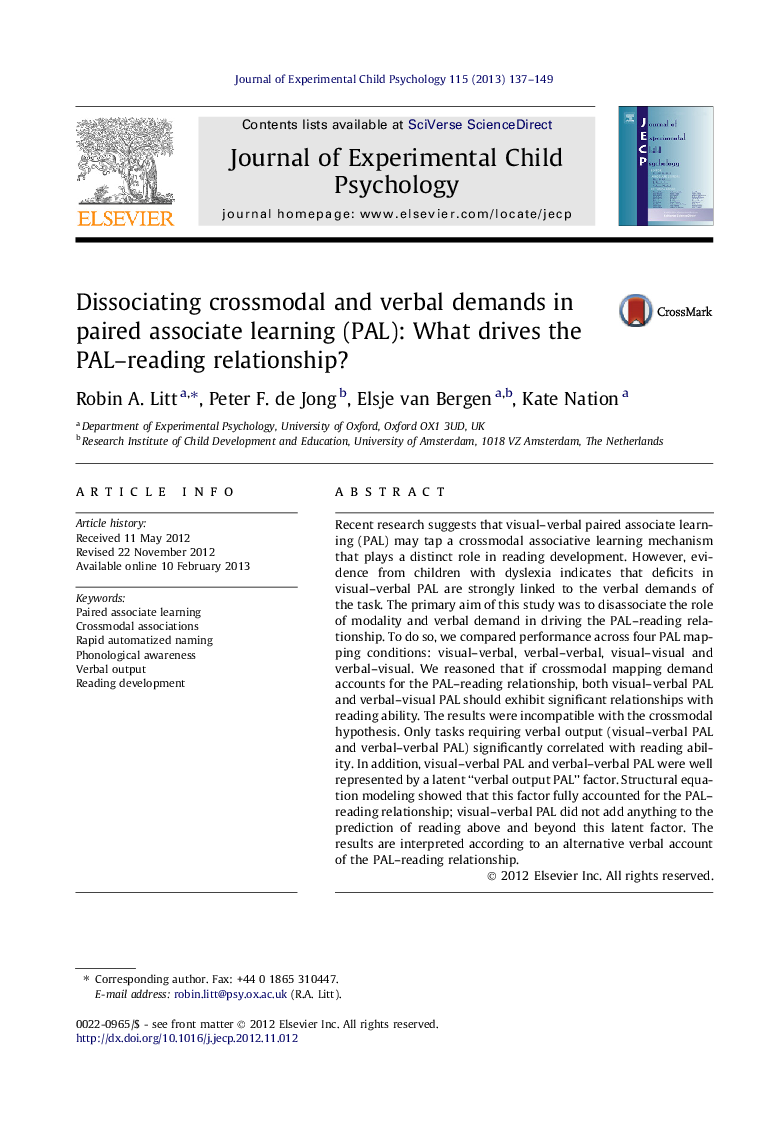| Article ID | Journal | Published Year | Pages | File Type |
|---|---|---|---|---|
| 918197 | Journal of Experimental Child Psychology | 2013 | 13 Pages |
Recent research suggests that visual–verbal paired associate learning (PAL) may tap a crossmodal associative learning mechanism that plays a distinct role in reading development. However, evidence from children with dyslexia indicates that deficits in visual–verbal PAL are strongly linked to the verbal demands of the task. The primary aim of this study was to disassociate the role of modality and verbal demand in driving the PAL–reading relationship. To do so, we compared performance across four PAL mapping conditions: visual–verbal, verbal–verbal, visual–visual and verbal–visual. We reasoned that if crossmodal mapping demand accounts for the PAL–reading relationship, both visual–verbal PAL and verbal–visual PAL should exhibit significant relationships with reading ability. The results were incompatible with the crossmodal hypothesis. Only tasks requiring verbal output (visual–verbal PAL and verbal–verbal PAL) significantly correlated with reading ability. In addition, visual–verbal PAL and verbal–verbal PAL were well represented by a latent “verbal output PAL” factor. Structural equation modeling showed that this factor fully accounted for the PAL–reading relationship; visual–verbal PAL did not add anything to the prediction of reading above and beyond this latent factor. The results are interpreted according to an alternative verbal account of the PAL–reading relationship.
► Our aim was to dissociate crossmodal and verbal demands in paired associate learning (PAL). ► We used four PAL conditions: visual-verbal, verbal-verbal, visual-visual, verbal-visual. ► Only visual-verbal and verbal-verbal PAL related to reading ability in children. ► A latent verbal-output PAL construct accounted fully for the relationship with reading. ► Verbal-output PAL explained variance in reading above and beyond phoneme deletion and RAN.
